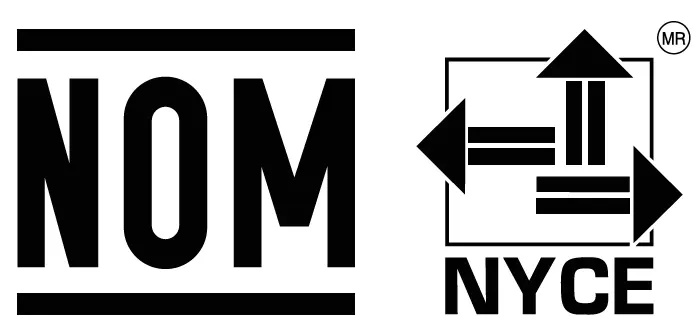
Which products require NOM certification in Mexico?
The Normas Oficiales Mexicanas (NOM) logo is Mexico's mandatory safety certification indicating that a product complies with relevant NOM standards. The NOM logo applies to most products, including telecommunications and information technology devices, household electrical appliances, lighting fixtures, and other products that pose potential health and safety risks. Whether products are manufactuRED locally or imported, they must comply with the applicable NOM standards and labeling regULations.

Certification Requirements:
According to Mexican law, the holder of the nom certification must be a Mexican company responsible for the product's quality, maintenance, and reliability. Test reports are issued by SECOFI-accredited laboratories, reviewed by SECOFI, ANCE, or NYCE. If the product meets the relevant regulatory requirements, a certificate is issued to the manufacturer or the Mexican representative of the exporter, allowing the product to carry the NOM logo.
Mandatory Certification Modes:
- M0: Certification through quality control and periodic testing verification.
- M1: Certification through periodic testing verification (new product model testing).
- M2: Certification through quality system evaluation verification (new product).
- M3: Conformity letter issued through periodic testing verification (applies to new products).
- M4: Certification through quality control and periodic testing verification (applies to redesigned products).
- M5: Batch certification (applies to redesigned products without re-design manuals and second-hand products).
- M6: 100% certification (applies to non-compliant products).
Applicable Product Scope:
NOM mandatory certification applies broadly to electronic and electrical products with AC or DC voltage exceeding 24 volts. It mainly covers product safety, energy and thermal effects, installation, health, and agricultural sectors. The following products must be NOM certified to enter the Mexican market:
1. Electronic or electrical products for home, office, and factory use.
2. Computer local area network devices.
3. Lighting fixtures.
4. Tires, toys, and school supplies.
5. Medical devices.
6. Wired and wireless communication products, such as wired phones, wireless phones, etc.
7. Products powered by electricity, propane, natural gas, or batteries.
Packaging and Labeling Information:
1. Name and address of the importer or distributor.
2. NOM logo.
3. Information about the country of origin.
4. Rated values for product input/output.
5. Product name and model.
6. Packaging quantity.
Mexico only recognizes its own NOM safety logo, and the safety logos of the United States and Canada are not recognized by the Mexican government. Products requiring mandatory certification can only enter the Mexican market if they bear the NOM safety logo.
Typically, the NOM logo is seen alongside NYCE or ANCE:
- NOM NYCE: Applies to electronic products, communication products, and data processing devices, but not household appliances.
- NOM ANCE: Applies to household appliances, including household electric devices, electric hand tools, etc.
NOM-Safety Certification Basic Information:
- Mandatory: Yes
- Regulated Products: Products within the scope of NOM's mandatory regulations.
- Factory Inspection: No
- Certificate Validity: 1 year
- Local Testing: Yes
- Local Representative: Required
NOM-Energy Efficiency Certification Basic Information:
- Mandatory: Yes
- Regulated Products: Products within the scope of NOM's mandatory regulations.
- Factory Inspection: No
- Certificate Validity: 3 years (annual testing required to maintain validity).
- Local Testing: Yes
- Local Representative: Required
New Standards in Effect:
On March 4, 2021, Mexico officially released the new version of the NOM-031-ENER-2019 standard, which came into effect on June 3, 2021.
Energy Efficiency Standards for Lighting Products:
- NOM-030-ENER-2016: Energy efficiency requirements for general lighting integrated LED bulbs.
- NOM-031-ENER-2019: Energy efficiency standards and testing methods for LED streetlights and outdoor public area lighting fixtures.
- NOM-017-ENER-2012: Energy efficiency requirements for compact fluorescent lamps.
- NOM-028-ENER-2017: Energy efficiency requirements for single-ended and double-ended incandescent lamps.
Email:hello@jjrlab.com
Write your message here and send it to us
 Canada Wireless Device IC Certification RSS-210 Te
Canada Wireless Device IC Certification RSS-210 Te
 FCC Part 15.231 for Wireless Remote Controls and S
FCC Part 15.231 for Wireless Remote Controls and S
 Is SAA Certification Required for Lamps Sold to Au
Is SAA Certification Required for Lamps Sold to Au
 Tablet PC RSS-247 Test Report
Tablet PC RSS-247 Test Report
 Canada ISED Certification RSS-247 Standard Testing
Canada ISED Certification RSS-247 Standard Testing
 What Are the Product Compliance for Amazon Austral
What Are the Product Compliance for Amazon Austral
 Australia IoT Security Compliance
Australia IoT Security Compliance
 V16 Warning Light EU EN 18031 Cybersecurity Certif
V16 Warning Light EU EN 18031 Cybersecurity Certif
Leave us a message
24-hour online customer service at any time to respond, so that you worry!




